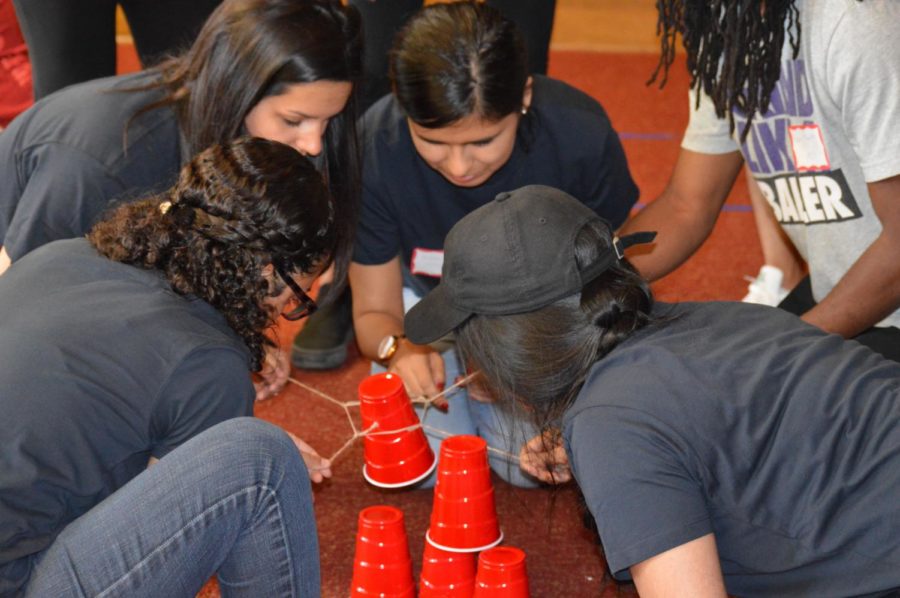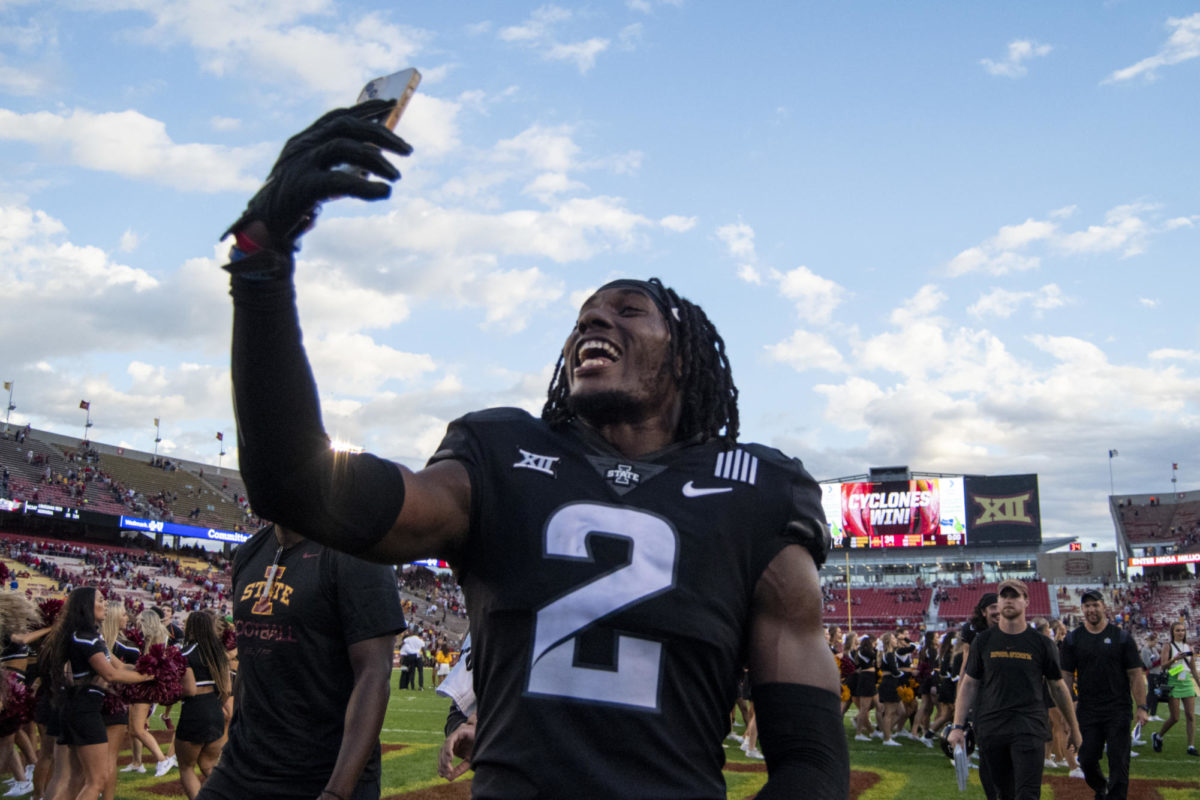Understanding the policies for sexual assault
January 12, 2011
The sexual misconduct, assault and harassment policy begins by stating that Iowa State strives to create a respectful, safe and non-threatening environment for its students.
Iowa State narrowed its sexual misconduct policy to be more specific and to include sexual assault and additional forms of misconduct.
“All of the factors of the code — such as is it forcible or is it non-forcible, is it a stranger or is it an acquaintance — determine how people conceptualize sexual assault,” said Keith Robinder, assistant dean of students and student assistance and outreach. “Often times, they use the short-hand of rape to mean very different things, that’s where our communication breaks down; the way one person uses it and understands it may be very different from how the policy or another person understands it.”
The former policy was not as cut-and-dry as the current one. Part of that stemmed from questions and concerns from Penny Rice, Women’s Center coordinator.
“A big group of us were looking at the questions of an assessment we were asking students to answer,” Rice said. “We were asking them to define the different kinds of behaviors and we went, ‘Wait a minute, how do we define sexual assault and how is that different than rape; is it different than rape; how about sexual abuse?’ So I brought out the policy.”
As indicated in the policy, sexual misconduct is a broad term encompassing any non-consensual behavior of a sexual nature committed by force or intimidation, or that is otherwise unwelcome. The term includes sexual assault, sexual exploitation, sexual intimidation and sexual harassment.
The policy describes sexual assault as an extreme form of sexual misconduct and represents a continuum of conduct from forcible rape to nonphysical forms of pressure that compel individuals to engage in sexual activity against their will.
In Iowa, the terms “rape” and “sexual assault” fall under the legal definition of “sexual abuse,” which includes any sex act done by force or against the will of another.
“It’s a lot of information to take in,” said Dione Somerville, dean of students. “What we’ve been trying to do the last two years is trying to help students understand the continuum of behaviors because a lot of times students will report something and not realize that what they are describing is sexual misconduct.”
“The vast majority of sexual misconduct that occurs on campus has alcohol involved.”
Students tend to fear reporting their experiences if alcohol has been involved. The fear of getting themselves in trouble if they are underage may prevent a person from reporting an event.
But the Dean of Students office indicated it is not here to get the student in trouble for their choices but they are here for support and help of the main issue — the sexual misconduct.
“It is more likely that the person who is going to harm us is someone who says, ‘I love you,'” Rice said. “Statistics show that it is going to be an intimate partner rather than a complete stranger.”
“The point being that the understanding of the reality is what we’re trying to achieve, and increasing the awareness that it is inappropriate and that as a member of the [ISU] community you have the right, as well as the responsibility, to share your information with a friend or with the people that care about these situations and who have the responsibility to respond,” Rice said.
It could be difficult to decipher when an incident that has happened is something someone should report.
A question that could be running through a victim’s head are, “What if I was drinking and it only happened once?”
“It just has to happen once. It doesn’t have to be, ‘My clothes were off and I was penetrated.’ It could be, ‘I was touched inappropriately in an elevator once, it creeped me out but I don’t know what to do,'” Robinder said.
“The value of our policy that we don’t talk a lot about is Iowa State affirms that there is no place for that in an educational community,” Robinder said. “People need to go to class, focus on their studies and not have to worry about what happened on a Friday night or any of those things.”
But the university can only take action if it is made aware of inappropriate events.
“The Dean of Students office cannot act upon something if we do not know about it,” Robinder said. “I can’t act on what I don’t know. I am able to help people a lot, if I know that they need my help.”
Unless an individual indicates that he or she wants to file a report, speaking with a police officer or any professional is OK to do without incriminating anyone else, Robinder said.
Who a student wants to tell about his or her experience and the actions he or she want to take can develop over time.
One day a person may only tell their closest friends and the next day they may feel comfortable telling someone in the Dean of Students office, and that is OK, Somerville said.
“One of the things I’ve experienced is a student will feel reluctant to tell someone because they feel as though their issue is insignificant or they won’t be believed or that it was their fault too, so that will prevent them from saying something,” Somerville said. “It’s our job to make sure they know that whenever, whomever, if ever you choose to tell, that in the process it’s understood and it’s affirmed in the choices you are making.”
“For us, what we care about is there is a student who is availing themselves of resources and assistance and we deal with that,” Somerville said. “Quite honestly the support and resources that the student needs are going to be the same regardless of where along that list [misconduct, assault, harassment] the things fit in.
“Don’t self categorize yourself and try to think where you belong on the list,” Somerville said. “If something is telling yourself that something isn’t quite right in terms of what happened, you have the ability to tell someone and whoever you tell has the opportunity to seek you the right resources.”
Somerville said when a student seeks help regarding his or her experience, because it is important to the student, it is also important to the staff.
“A range of behaviors can be labeled as sexual assault and sexual misconduct covers that, but it also covers more,” Robinder said. “Some of the behaviors are against the law while some of them are not. However, all of them are against our policy. We want students to understand that our policy is broadly defined because there is no room for sexual misconduct especially in an educational environment.”
The university prohibits sexual misconduct in any form, including sexual assault or sexual abuse, sexual harassment and other forms of non-consensual sexual misconduct, indicated in the policy statement.
“We really want students to come to Iowa State and graduate with the least amount of challenges and barriers. Being able to eliminate these challenges and barriers is just as important, if not more important, than seeking the help the students needs,” Somerville said.
Filing a report or making a complaint isn’t a students only option. The most important thing is getting the help they need.
Iowa State takes an approach centering its response on what the victim wants to share, Robinder said. The staff then deals with the messiness of when it gets reported and how it gets reported.
The university will work to safeguard the identities and privacy of the students who seek help or who report sexual misconduct. However, it is important that students understand the limits on confidentiality; different people, depending on their positions, have different obligations with regard to confidentiality.
The policy also states that campus and community services are available to students even if reports aren’t made. The university strongly encourages students to seek assistance to care for themselves emotionally and physically through confidential crisis intervention, health care and counseling.
















